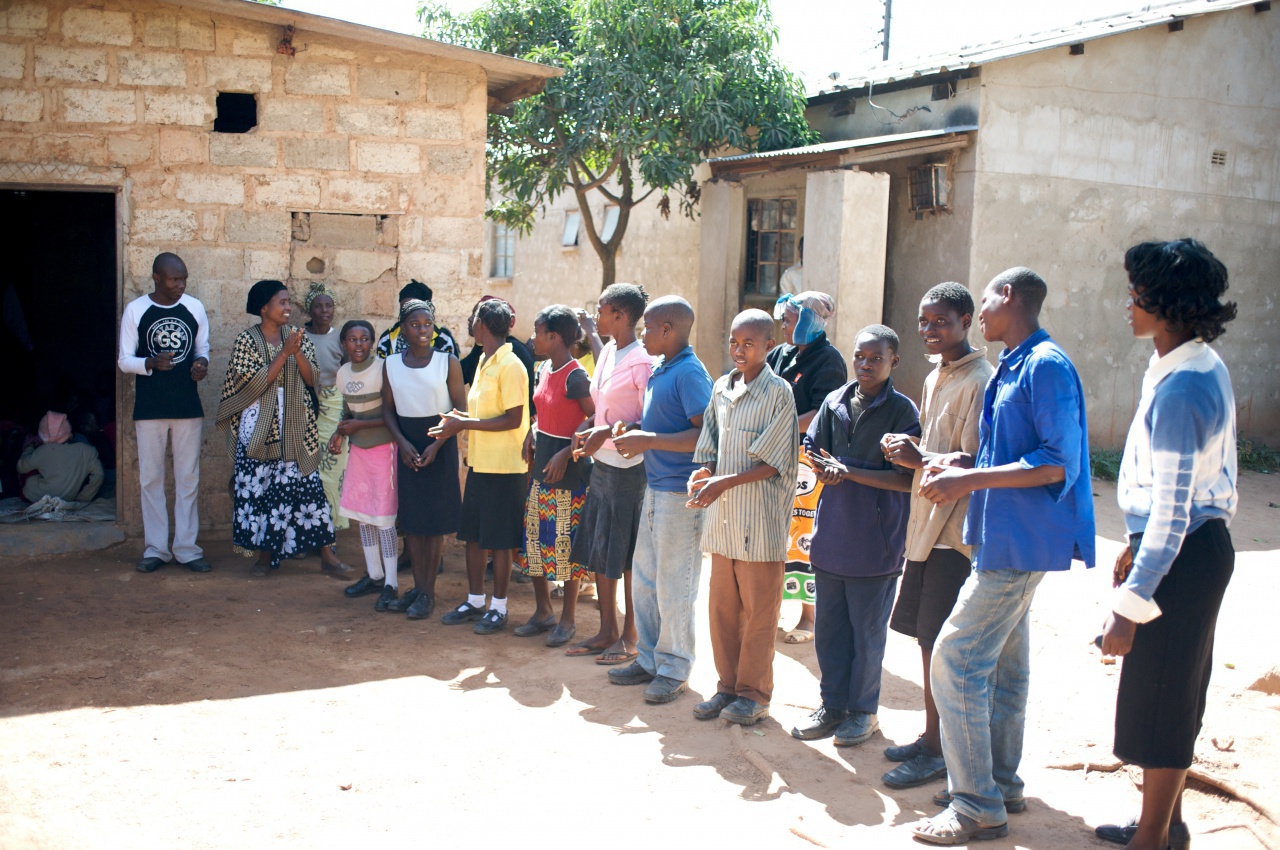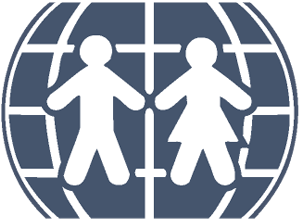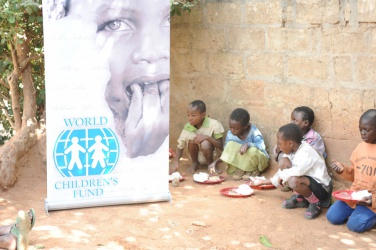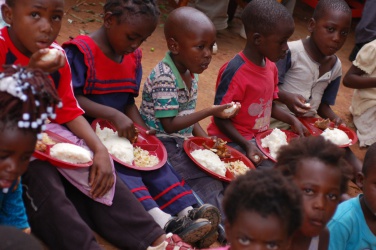Our WCF supported program in the Lusaka area of Zambia provides educational opportunity in conjunction with a daily well-balanced and nutritious meal day to about 350 school age children in a community school setting. Without WCF support, these children would not have the opportunity to attend school. Most of them either have low-income parents or no parents at all. The food provided at lunch is a lifesaver to financially strapped families and orphans. Most of these children are considered "vulnerable" by the government, which translates into malnutrition, sickness, disease and death.
The daily meal we serve consists of enchima (maize), some meat (either chicken, kapenta (fish), or soya chunks) and some vegetables, soup or beans. The meal plans are organized to give the children variety, although we serve enchima daily. For instance, one day, we serve chicken, one day fish, one day soya, along with different relishes and vegetables. We can feed a child a well-balanced meal for less than one US dollar each day.
According to Connie Keating, our local Zambia partner, more than 50% of the children enrolled in the program are orphans. Many of the children who enroll are initially motivated because of the nutritious meal we provide. For most of the children, it is the only food they receive on a regular basis. According to Keating, many of the children in the program often pocket a little of their food to take back to younger siblings who are too young to enroll or are on the waiting list.
The area in Lusaka where the program is located has an estimated 80% unemployment. It is known for its elevated levels of chronic malnutrition. Most people here live on less than one US dollar per day. If they are lucky, they get to eat once per day.
Driving out to the school requires a four-wheel drive truck. A typical car does not have the clearance to maneuver through the deep ruts in the dirt roads.
Most roads in Lusaka are not surfaced. They are covered with potholes. The trek requires slow and careful navigation. When it is dry, the roads are rutted, dusty and dirty. When it is wet, it is flooded and muddy.
The overwhelming majority of the population lives in squalid shacks, without water, sanitation or electricity. -No light or heat during the cold winter evenings or cooling system during the long, hot summer.
The impacts and success of the school feeding program are profound. "We are seeing improvements in the attendance of children, alertness in the classroom and higher-grade achievements," said Keating. "But, we need help. We have hundreds of hungry children waiting for a chance to come to our school to learn and get some food each day."
The cost of food is continuing to rise in Zambia -putting pressure on school enrollment and the waiting list of children who desperately need the one meal per day provided by our program.
Find out more about how you can partner with us in Zambia. Feed hungry children. Change the world. -One child at a time.



